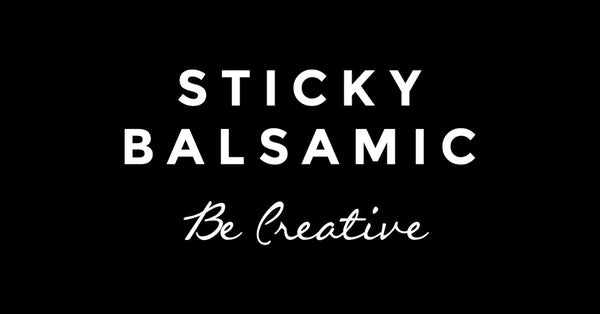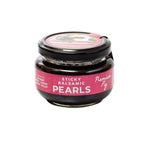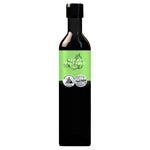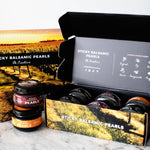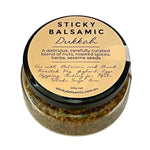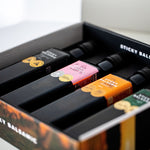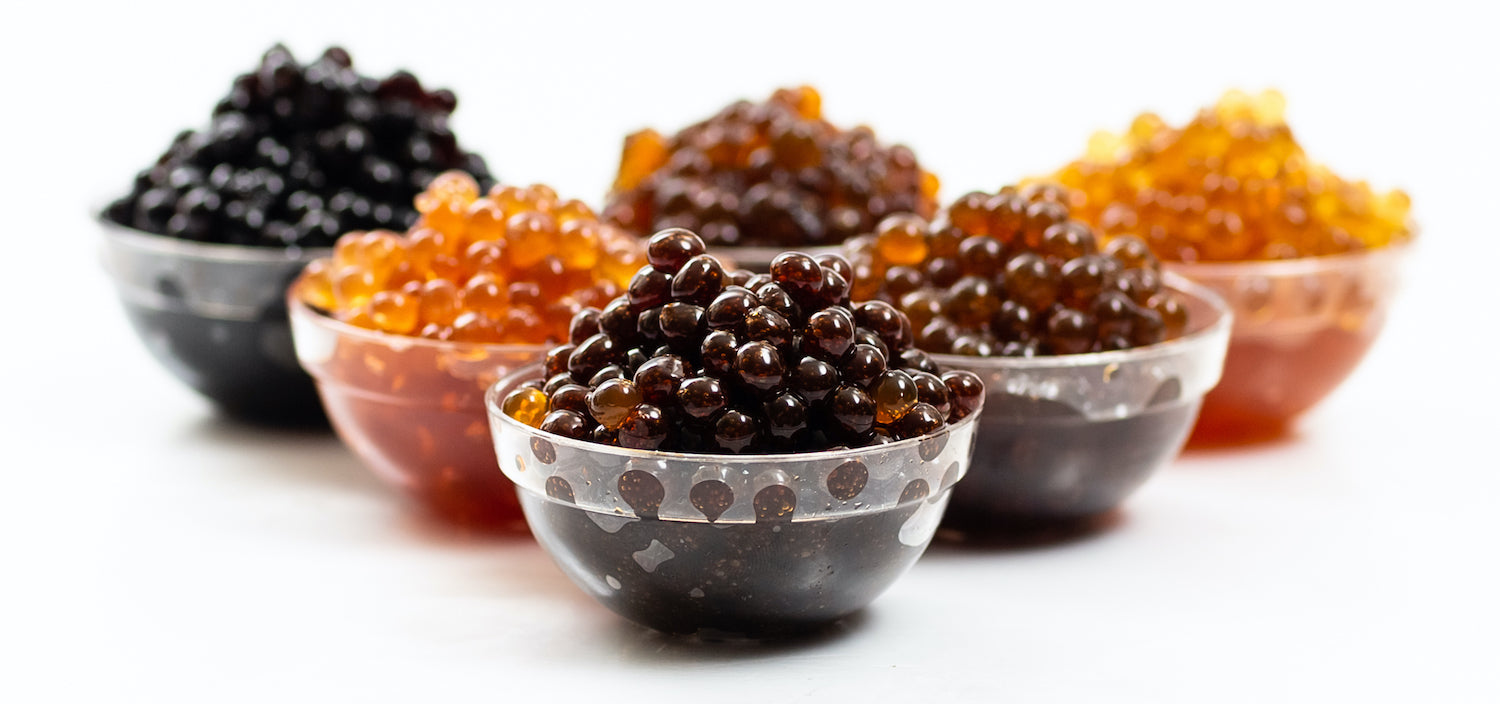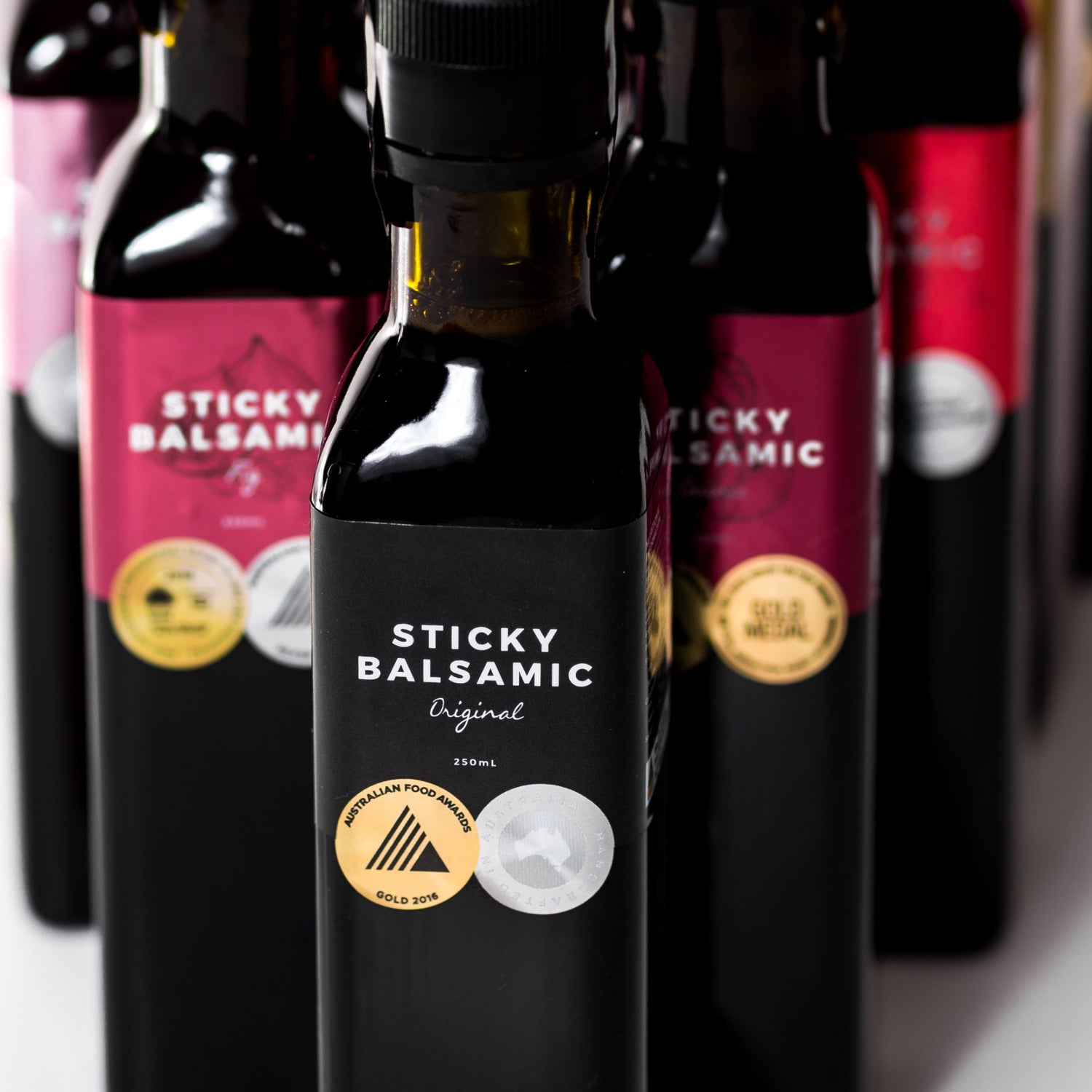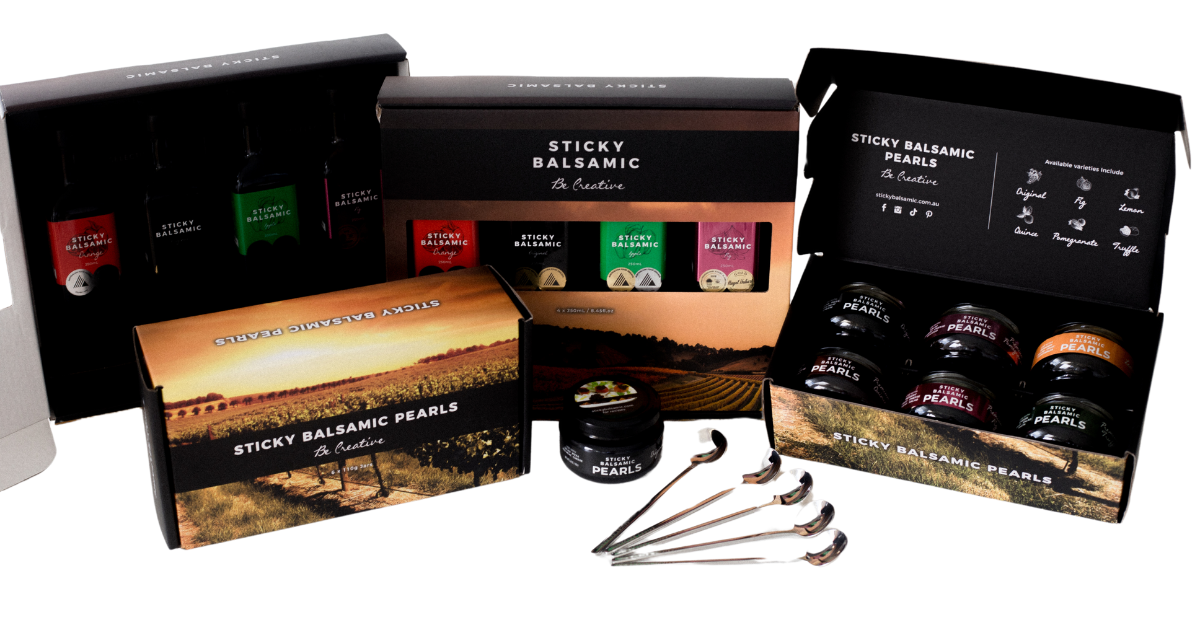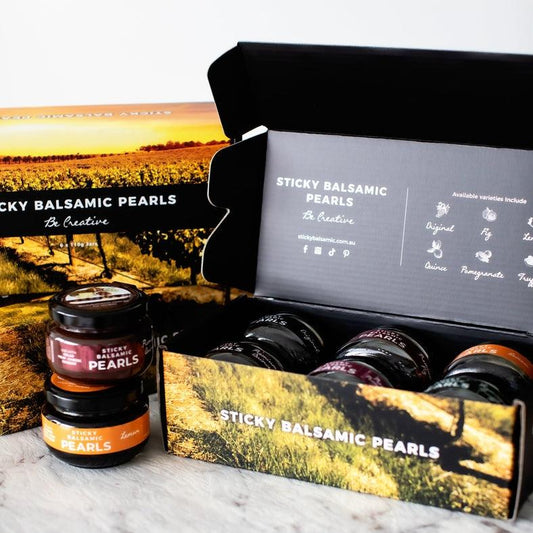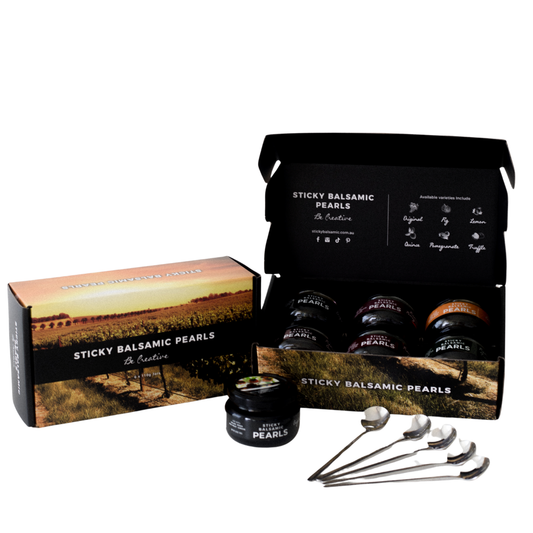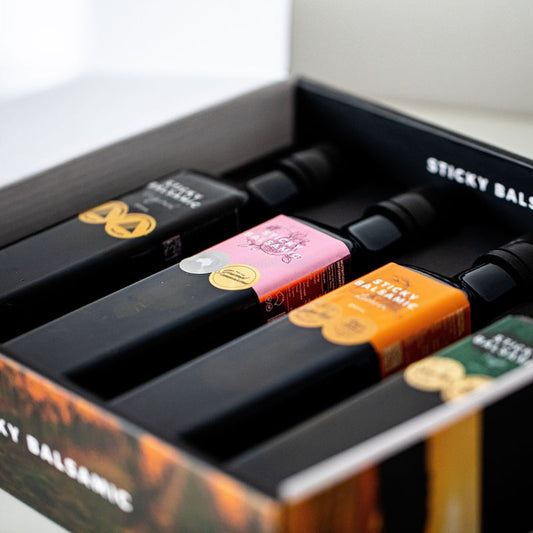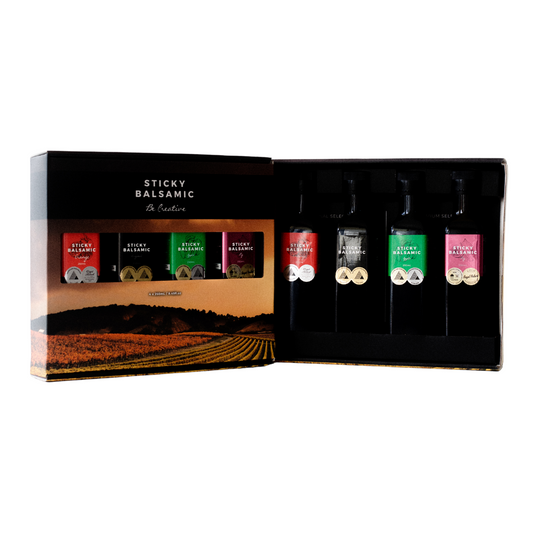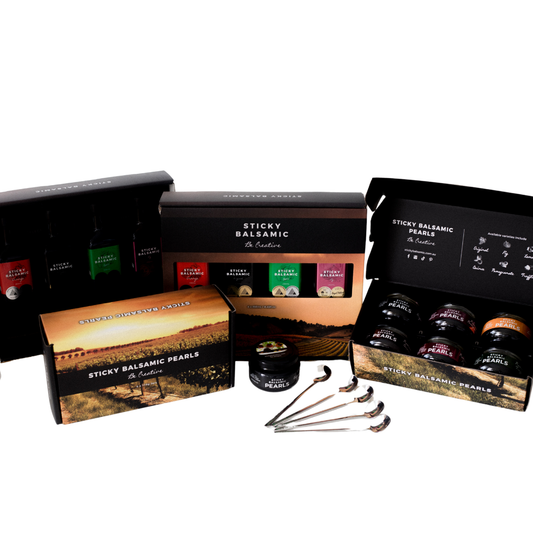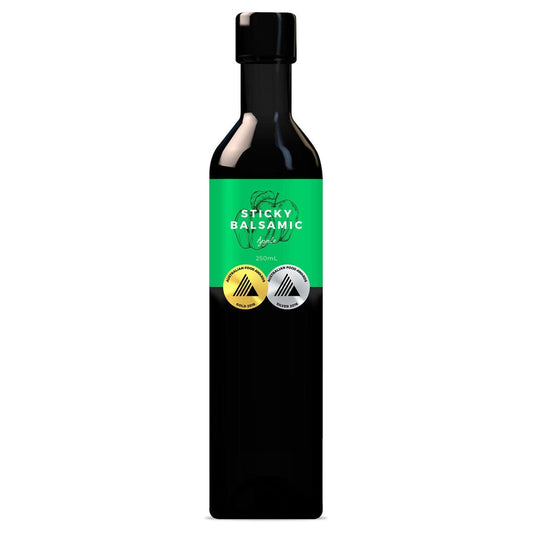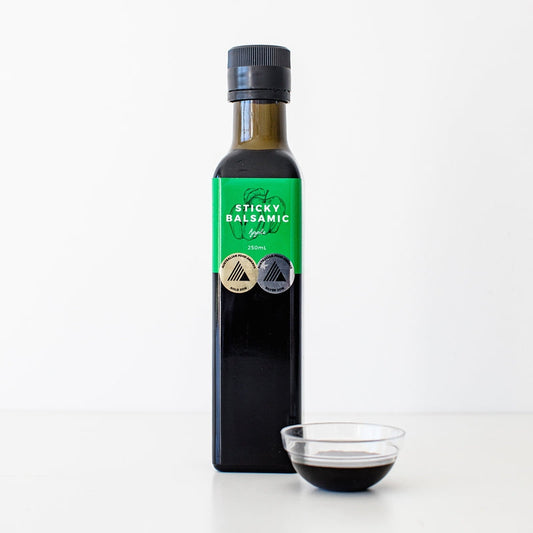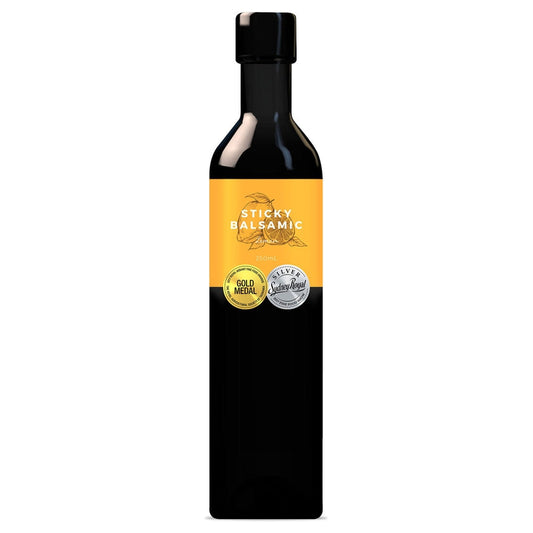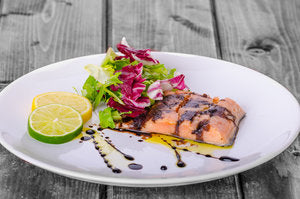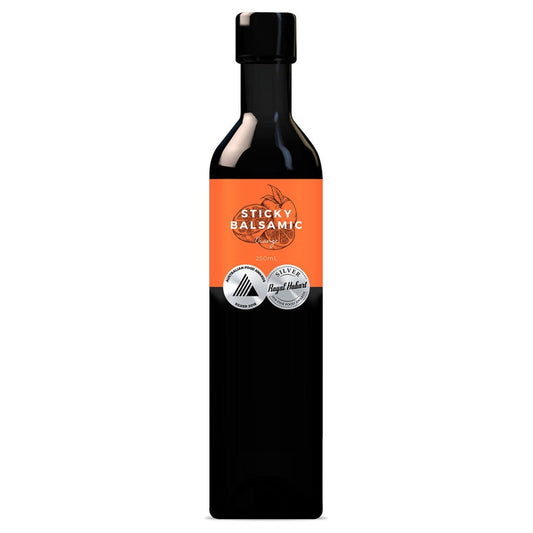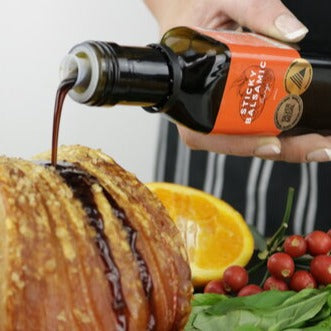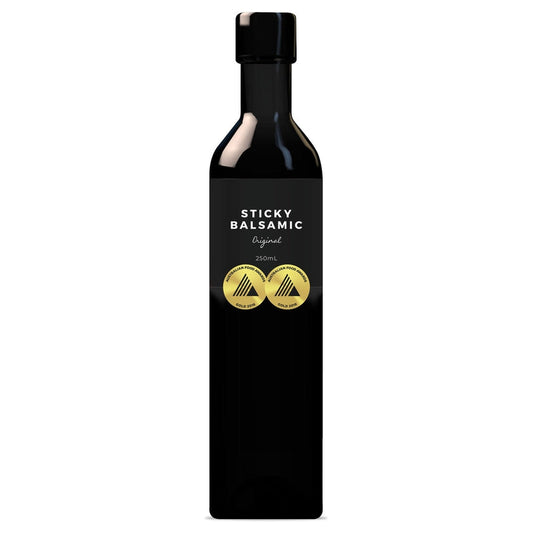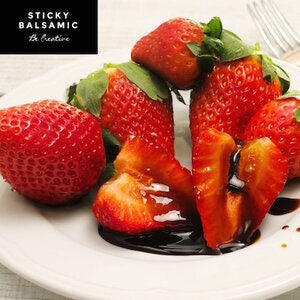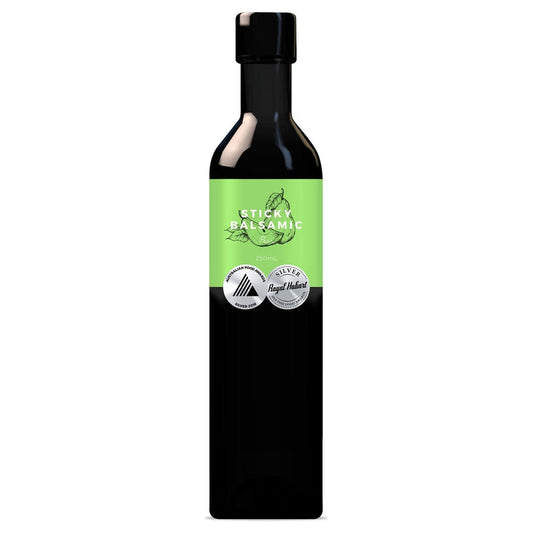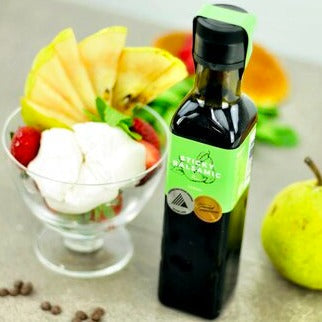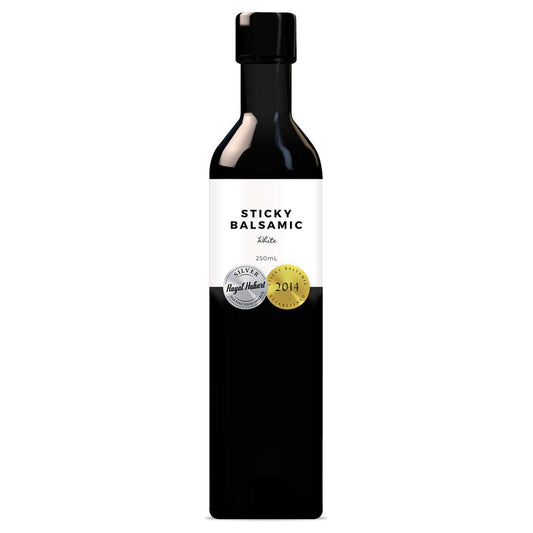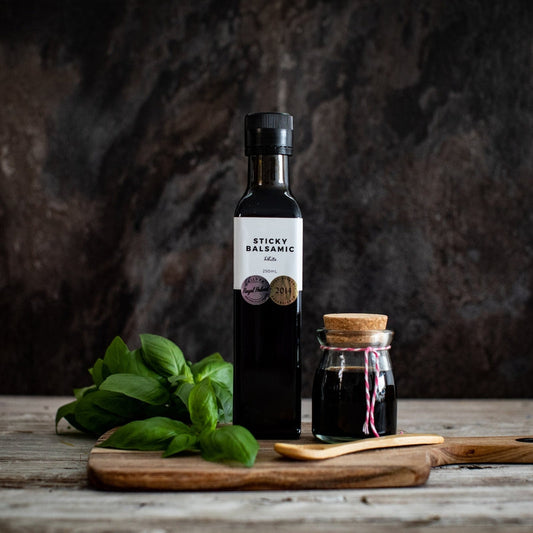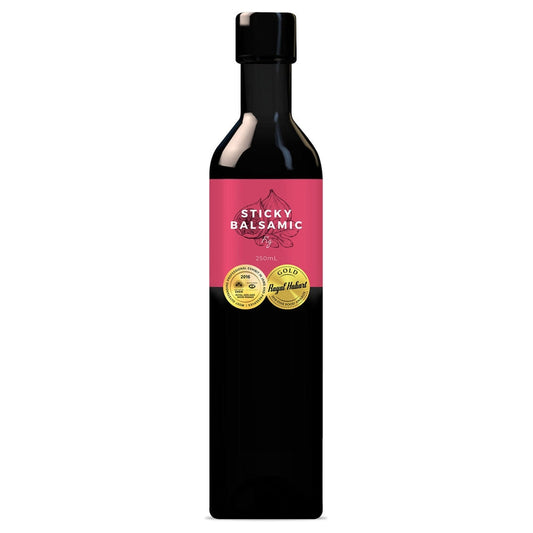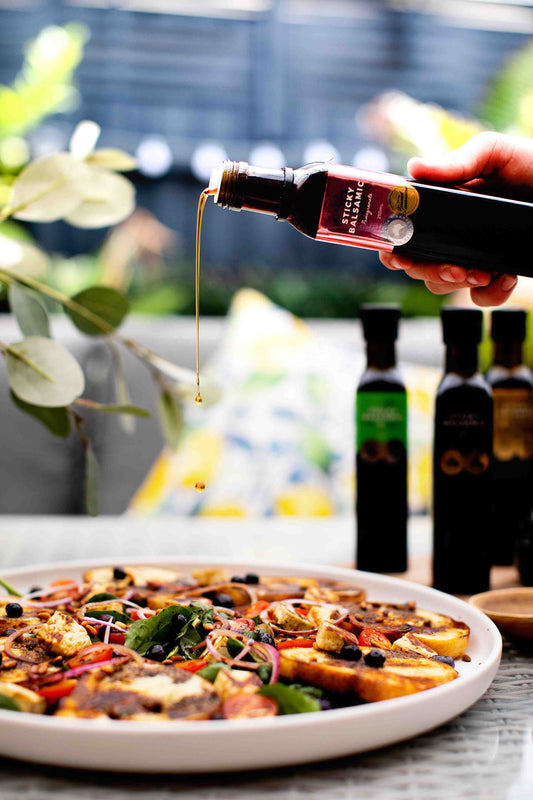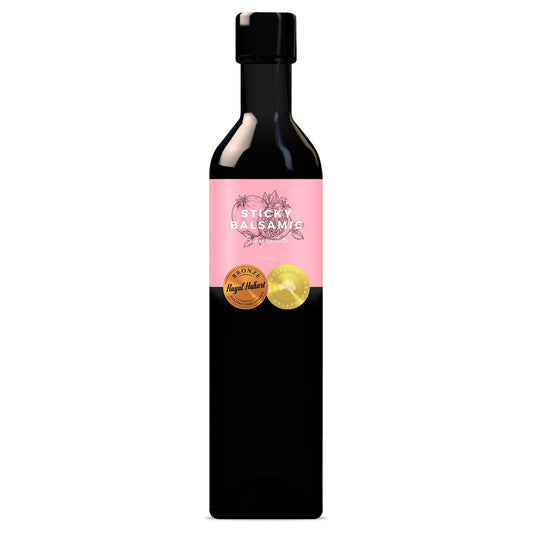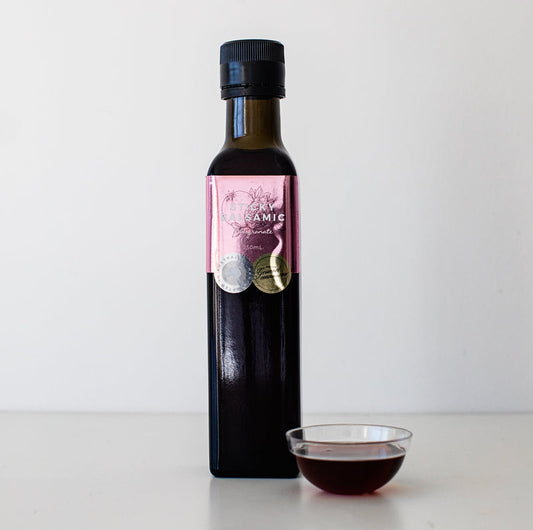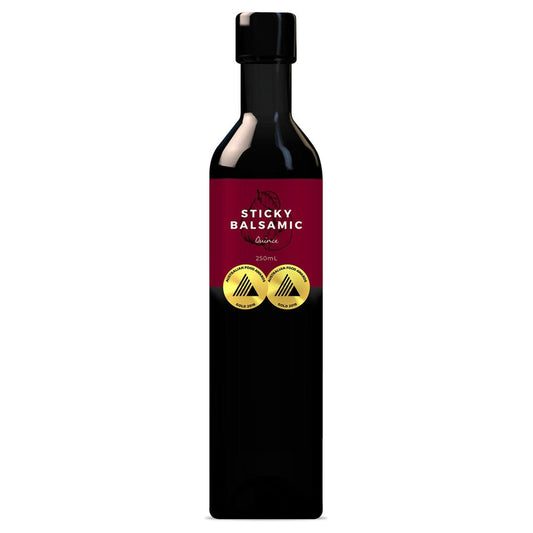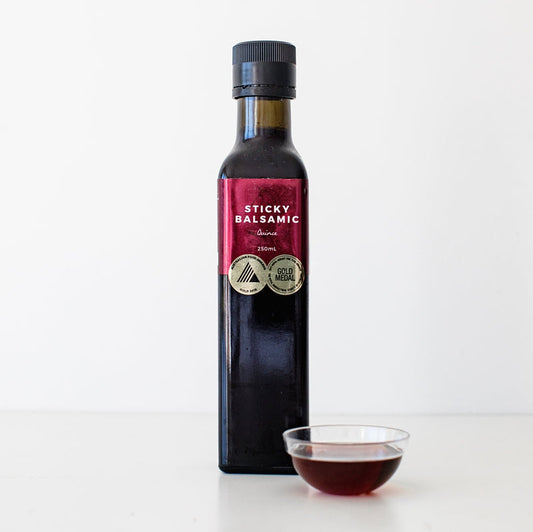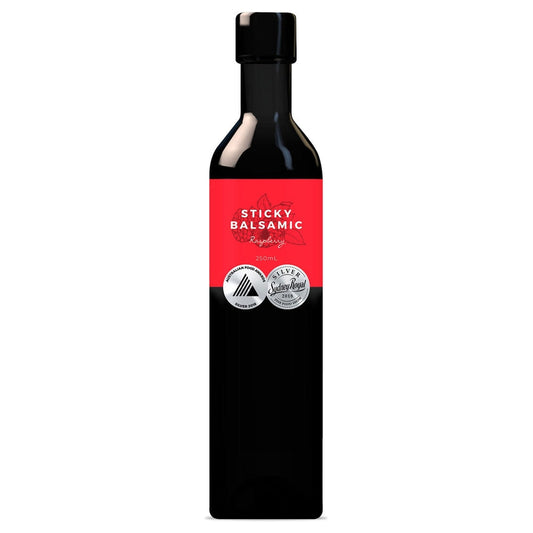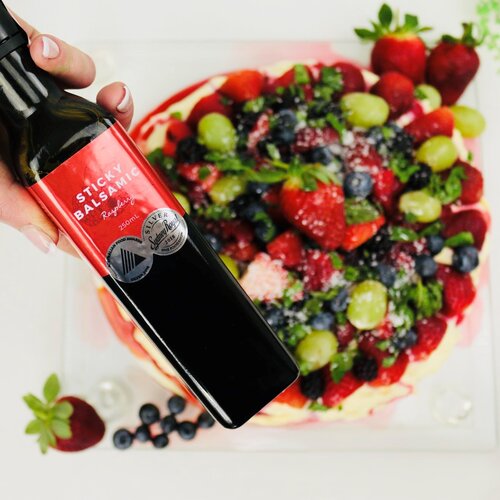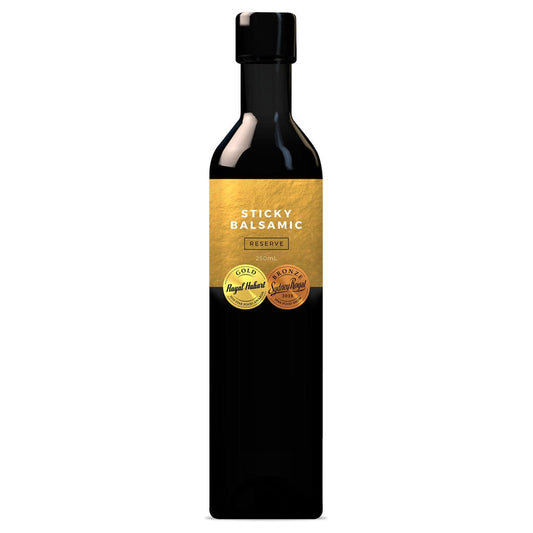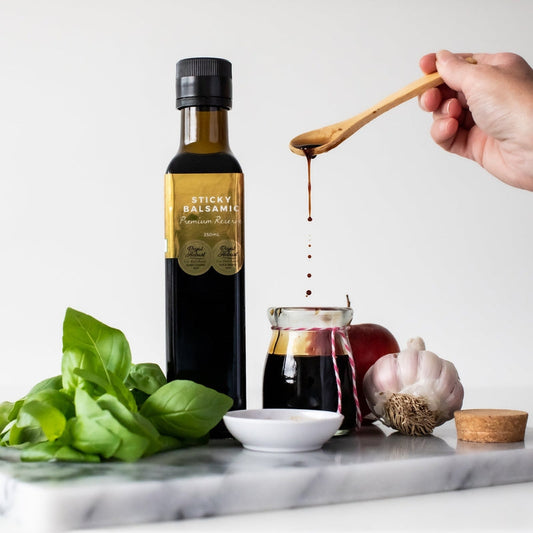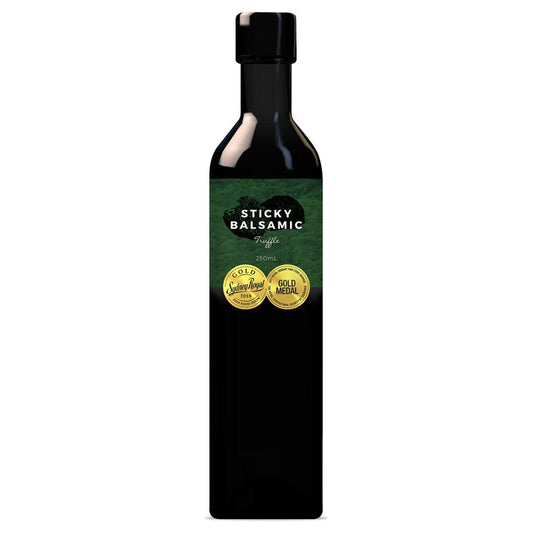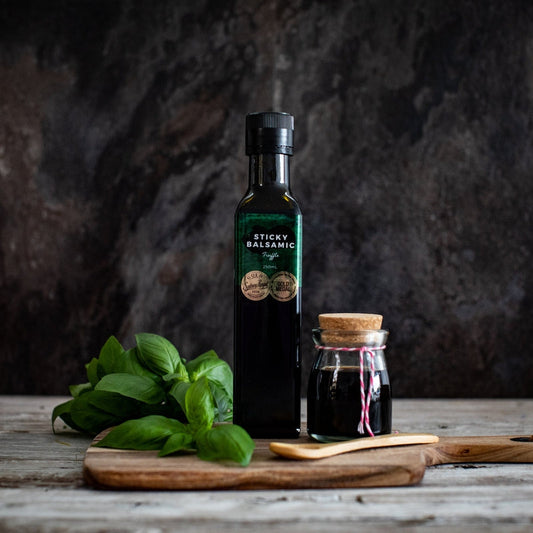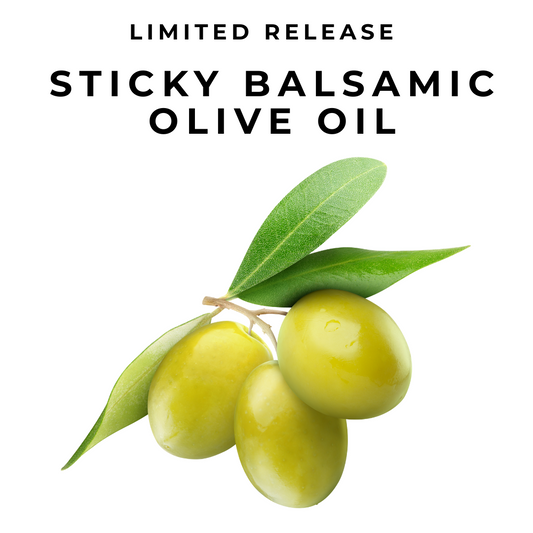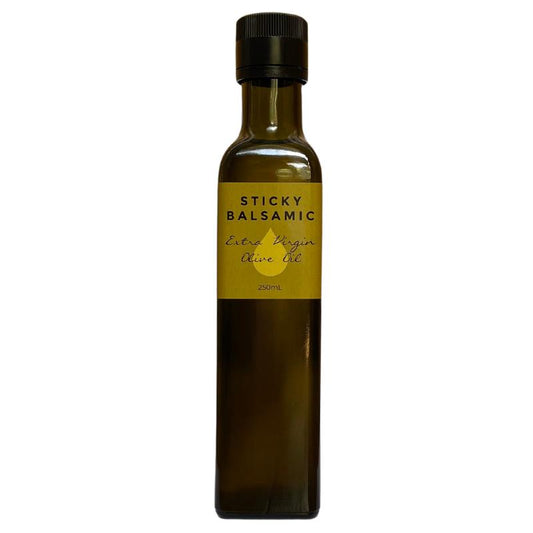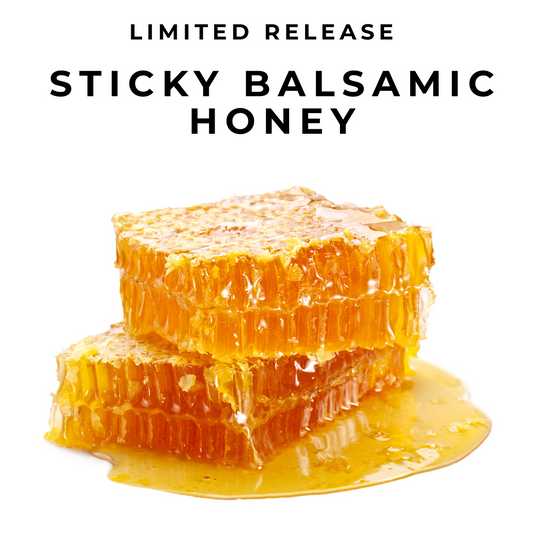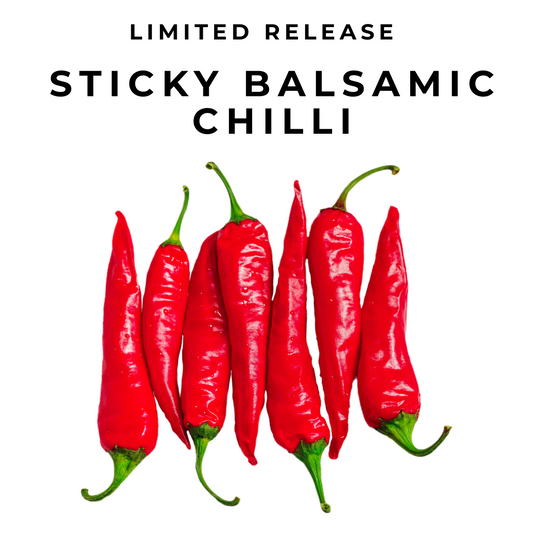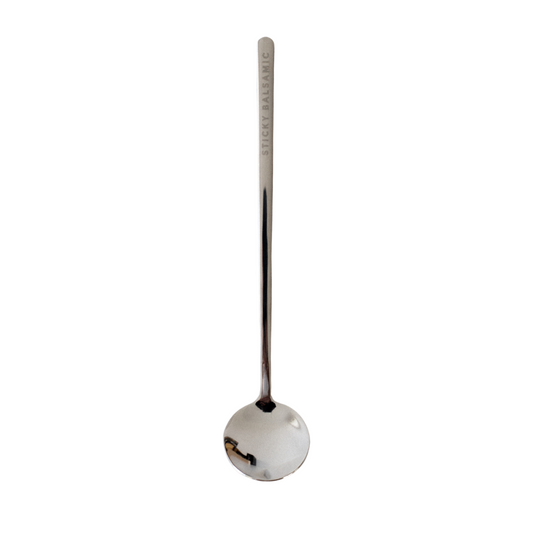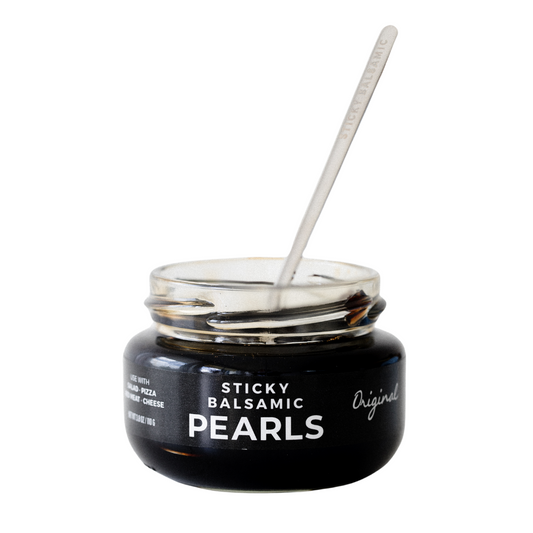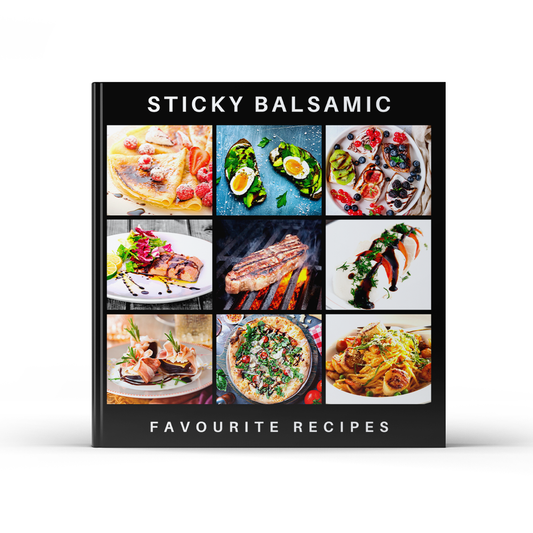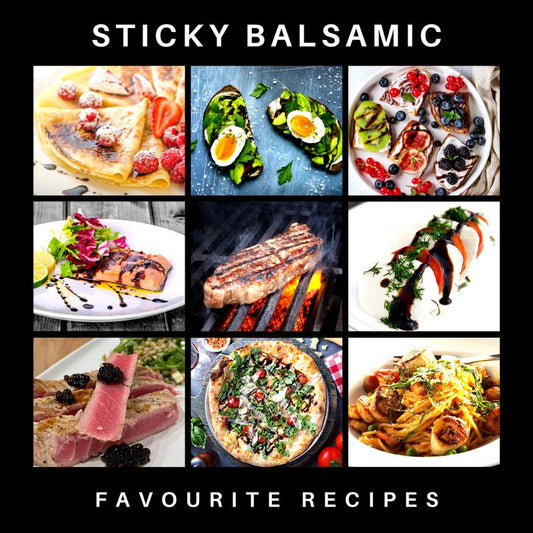
Australia's Most Awarded Balsamic
Sticky Balsamic Bottles
-
Pearls Gift Box - Sticky Balsamic
4.81Regular price $69.99Sale price $69.99 Regular priceUnit price / per -
Sticky Balsamic - Gift Box
4.95Regular price From $68.99Sale price From $68.99 Regular priceUnit price / per -
Ultimate Sticky Balsamic Bundle
Regular price $320.00Sale price $320.00 Regular priceUnit price / per -
-
-
-
-
-
-
Premium Fig Sticky Balsamic
4.88Regular price $25.00Sale price $25.00 Regular priceUnit price / per -
Premium Pomegranate Sticky Balsamic
4.38Regular price $25.00Sale price $25.00 Regular priceUnit price / per -
Premium Quince Sticky Balsamic
5.0Regular price $25.00Sale price $25.00 Regular priceUnit price / per -
Premium Raspberry Sticky Balsamic
4.91Regular price $25.00Sale price $25.00 Regular priceUnit price / per -
Premium Reserve Sticky Balsamic
5.0Regular price $25.00Sale price $25.00 Regular priceUnit price / per -
Premium Truffle Sticky Balsamic
5.0Regular price $27.00Sale price $27.00 Regular priceUnit price / per -
Extra Virgin Olive Oil - Sticky Balsamic
5.0Regular price $12.00Sale price $12.00 Regular priceUnit price / per -
Sticky Balsamic Honey - LIMITED EDITION
5.0Regular price $20.00Sale price $20.00 Regular priceUnit price / per -
Sticky Balsamic Chilli - LIMITED EDITION
3.0Regular price $25.00Sale price $25.00 Regular priceUnit price / per -
-
Let customers speak for us
from 898 reviewsHi team
This is my go to vinegar every Sunday. I use it with smoked salmon salad along with a good EV olive oil along with SB Lemon pearls. It is mouth wateringly delicious.
Anonymous

We absolutely LOVE your Sticky Balsamic Pearls.... what a Treat! We serve them now on all our fish dishes, and on salads and even eggs! They are delicate and surprisingly intense in flavor. We've used the original and well as Lemon and Pomegranate! Sooooo Gooooood!

I have loved these so much I've bought them for all my family. Breakfast or cheese platter, very versatile and they just taste so good.

I love these pearls so much, and every day I'm finding new foods to add them too. What a fabulous creation! Thank you for Balsamic Pearls!!

Oh my, these Pearls are Wonderful. I purchased 3 jars, and I am thoroughly enjoying them. On fish, in my salads, even atop soft cream cheese and crackers. Thank you for this delicious product!

Very tasty. They add a new flavor to everything

Finally had the right meal for company to open Fig Pearls for the first time: grilled pork tenderloin, mashed potatoes and wonderful salad. Offered the Fig Pearls as a side condiment and among 6 of us the jar was almost emptied by the end of dinner. Wonderful flavor that enhanced the meat and the salad. Can’t wait to try the original and the pomegranate versions.

I love to top our lamb couscous dish with this then garnish with mint. The plate just looks super appetizing!

This wonderful balsamic is a must! Makes your salad deliscious !

I wish the jars were triple the size!! Absolutely delicious! So versatile and elevates savoury/sweet dishes. And its a staple on my cheese boards! I also added a large tablespoon of the sticky balsamic 🍋 pearls on top of creamy vanilla ice cream! SO good. The possibilities are endless!

I love the flavor pop it adds to food. It’s great with meats and cheeses especially.

The best tasting and most versatile balsamic on the market!

Love the products I ordered that I had to order a few more for my holidays to take with me. I love the spoons as well, I bought one and received one as a gift for ordering.
Will buy more pearl products and balsamic as well.. thank you

As they were presents I did not try any but the recipients of the gifts were thrilled.
I am sure I will get to taste them soon.

Want more info about balsamic vinegar?
Premium Balsamic Vinegar from Australia's Most Awarded Producer
Welcome to Sticky Balsamic – where Australia's most awarded balsamic vinegar meets everyday elegance. Our collection of premium balsamic vinegars brings restaurant-quality flavor to your kitchen, whether you're drizzling over fresh salads, finishing a perfectly seared steak, or creating gourmet appetizers that'll have your guests asking for your secret ingredient.
Why Choose Our Balsamic Vinegar?
Not all balsamic vinegar is created equal. Our bottles contain the same award-winning balsamic vinegar that's earned over 120 medals and industry recognition. Each bottle is crafted in our HACCP and SQF certified facility in regional Victoria, using quality ingredients and a commitment to excellence that's been part of our story since day one.
Whether you're a home cook looking to elevate weeknight dinners or someone who loves entertaining, our balsamic vinegar collection delivers consistent, exceptional flavor. From our classic Original to bold varieties like Premium Truffle and Premium Fig, there's a balsamic vinegar here for every palate and occasion.
Our Balsamic Vinegar Range
Original Balsamic Vinegar: The foundation of our collection. Versatile, balanced, and perfect for everything from salad dressings to marinades. This is the balsamic vinegar that started it all.
Premium Fig Balsamic Vinegar: Add depth and sophistication to your dishes. The subtle sweetness of fig pairs beautifully with cheese, charcuterie, and roasted vegetables.
Premium Truffle Balsamic Vinegar: For those moments when good enough isn't an option. This balsamic vinegar brings earthy elegance to steaks, risottos, and fine dining at home.
Premium Pomegranate Balsamic Vinegar: Bright, fruity, and utterly versatile. This balsamic vinegar shines on salads, seafood, and as a finishing touch on desserts.
Premium Quince Balsamic Vinegar: A unique addition to your pantry. The delicate floral notes of quince make this balsamic vinegar perfect for charcuterie boards and sophisticated entertaining.
Lemon Balsamic Vinegar: Fresh, zesty, and endlessly useful. This balsamic vinegar brightens fish dishes, roasted vegetables, and light summer salads.
How to Use Balsamic Vinegar
Our balsamic vinegar isn't just for salads. Try it on:
- Grilled vegetables and roasted root vegetables
- Fresh mozzarella and tomato dishes
- Strawberries and vanilla ice cream
- Aged cheeses on a charcuterie board
- Finished steaks and premium cuts
- Seafood and fish preparations
- Creamy soups and bisques
- Glazes for roasted meats and poultry
Quality You Can Taste
Every bottle of our balsamic vinegar goes through rigorous quality testing. We monitor flavor, visual appearance, pH, and acidity to ensure consistency batch after batch. Our commitment to food safety means your balsamic vinegar arrives fresh, flavorful, and ready to transform your cooking.
With a shelf life of three years, our balsamic vinegar is perfect for stocking your pantry and having on hand whenever inspiration strikes.
Award-Winning Excellence
Our balsamic vinegar collection has earned recognition from industry experts and home cooks alike. Over 120 awards and medals speak to our dedication to quality, innovation, and taste. When you choose Sticky Balsamic, you're choosing a product that's been proven in competition and loved by thousands of customers.
Free Shipping on Orders Over $150
Stock up on your favorite balsamic vinegar varieties and enjoy free shipping on orders over $150. Otherwise, we deliver for just $10 – because great balsamic vinegar should be accessible.
The Sticky Balsamic Promise
We stand behind every bottle of balsamic vinegar we produce. Our Love It Guarantee means you can shop with confidence. If you're not completely satisfied, we'll make it right.
Explore our full range of premium balsamic vinegar bottles today and discover why we're Australia's most awarded balsamic producer.
FAQs about Balsamic Vinegar
Frequently Asked Questions
Find more info about balsamic vinegar and specifically, Sticky Balsamic, on our FAQ Page.
Is balsamic vinegar good for health?
Balsamic vinegar offers several potential health benefits when consumed in moderation. It contains antioxidants from the grapes used in its production, which may help reduce inflammation and support heart health. Some studies suggest vinegar can aid digestion and help regulate blood sugar levels. However, balsamic vinegar is acidic and contains natural sugars, so it's best enjoyed as part of a balanced diet rather than as a health supplement. A drizzle over your salad or finished dish is the ideal way to enjoy both the flavor and potential benefits.
Does balsamic vinegar need to be refrigerated?
No, balsamic vinegar does not need to be refrigerated. Store it in a cool, dark place away from direct sunlight and heat sources – your pantry is perfect. Balsamic vinegar has a shelf life of approximately three years when stored properly at room temperature. The acidity and natural preservation properties mean it stays fresh without refrigeration. Once opened, simply cap it tightly and return it to your pantry. You'll know if something's wrong if you notice off-odors or visible mold, but this is extremely rare with quality balsamic vinegar.
What is balsamic vinegar mainly used for?
Balsamic vinegar is incredibly versatile in the kitchen. While it's famous for vinaigrettes and salad dressings, it's equally at home finishing a perfectly seared steak, glazing roasted vegetables, or drizzling over fresh mozzarella and tomatoes. Chefs use it to add depth to soups, risottos, and sauces. It pairs beautifully with aged cheeses on charcuterie boards and even works as a surprising finishing touch on strawberries and vanilla ice cream. The key is using it as a finishing ingredient – a small amount adds big flavor without overwhelming the dish. Have a look at some food-spiring recipes how you can use Sticky Balsamic.
What is a substitute for balsamic vinegar?
If you're out of balsamic vinegar, several substitutes work depending on your dish. Red wine vinegar mixed with a touch of honey mimics balsamic's sweet-tart profile. Apple cider vinegar offers similar acidity but with a different flavor profile – better for lighter dishes. Sherry vinegar provides elegance for fine dining applications. Rice vinegar works well in Asian-inspired dishes. For a quick fix, combine any vinegar with a small amount of honey or maple syrup to approximate balsamic's complexity. That said, nothing quite captures the depth and sophistication of authentic balsamic vinegar, so it's worth keeping a bottle on hand.
Which is healthier, apple cider vinegar or balsamic?
Both vinegars offer potential health benefits, but they're different. Apple cider vinegar is lower in sugar and calories, making it a better choice if you're watching sugar intake. Balsamic vinegar contains more antioxidants from its grape base and offers a more complex nutritional profile. Apple cider vinegar is often praised for digestive support, while balsamic's antioxidants may support heart health. The "healthier" choice depends on your individual health goals. For most people, the difference is minimal – what matters more is using either vinegar in moderation as part of a balanced diet rather than consuming large quantities.
Can I drink balsamic vinegar every day?
While balsamic vinegar is fine in small amounts, drinking it daily isn't recommended. The acidity can erode tooth enamel over time and may irritate your digestive system if consumed undiluted. If you want to incorporate balsamic vinegar into a daily routine, dilute a small amount (1 teaspoon) in water and drink it with meals. Better yet, enjoy it the way it's meant to be used – as an ingredient that adds beautiful flavor to your food. A drizzle over salads, vegetables, or finished dishes gives you the benefits without the risks of daily consumption.
Does balsamic vinegar have sugar?
Yes, balsamic vinegar contains natural sugars – typically around 3-4 grams per tablespoon, depending on the brand and production method. These sugars come from the grape must used to make it. While this is higher than some other vinegars, the amount used in typical cooking is small – a drizzle or splash in a recipe. For context, a tablespoon of balsamic vinegar contains roughly the same sugar as a small piece of fruit. If you're managing sugar intake, use balsamic vinegar in moderation and account for it in your daily totals, but don't eliminate it entirely – the flavor impact means you use less overall.
What is the best balsamic vinegar brand?
The best balsamic vinegar brand depends on your needs and budget. Traditional balsamic vinegar from Modena, Italy is considered the gold standard, but it's expensive. For everyday cooking, look for brands that prioritize quality ingredients, proper aging, and transparent production methods. Sticky Balsamic is Australia's most awarded balsamic producer, with over 120 medals and industry recognition for quality and innovation. Our collection offers exceptional flavor at competitive prices, whether you're looking for the classic Original or specialty flavors like Premium Truffle or Premium Fig. The best brand is one that delivers consistent flavor and quality you can taste in every dish.
What to add to balsamic vinegar?
Balsamic vinegar is delicious on its own, but you can enhance it further. Mix it with quality olive oil for a classic vinaigrette base – a 1:3 ratio of vinegar to oil is a good starting point. Add Dijon mustard for emulsification and extra depth. Fresh herbs like basil, oregano, or thyme complement it beautifully. A touch of honey or maple syrup balances the acidity. Minced garlic or shallots add complexity. For finishing dishes, try pairing balsamic with sea salt and cracked pepper. The beauty of balsamic vinegar is that it plays well with others – experiment to find your favorite combinations.
Does balsamic vinegar spike blood sugar?
Balsamic vinegar has a relatively low glycemic impact when used in typical cooking amounts. While it contains natural sugars, the quantity used in most dishes is small – usually just a drizzle or splash. Some research suggests that vinegar, including balsamic, may actually help moderate blood sugar spikes when consumed with meals. If you have diabetes or blood sugar concerns, use balsamic vinegar in moderation as part of balanced meals with protein and fiber. A tablespoon or two as a finishing ingredient won't significantly impact blood sugar for most people, but individual responses vary – consult your healthcare provider if you have specific concerns.
What do Italians eat balsamic vinegar with?
In Italy, balsamic vinegar is a cornerstone of traditional cooking. Italians drizzle it over fresh mozzarella and tomatoes – a simple, elegant preparation. It finishes grilled vegetables, especially mushrooms and zucchini. Aged balsamic is served over Parmigiano-Reggiano cheese as a sophisticated appetizer. It glazes roasted meats and game. Italians use it in risottos, particularly risotto al balsamico. Fresh strawberries with balsamic is a classic Italian dessert. The key to Italian tradition is using balsamic as a finishing touch – adding it at the end of cooking to preserve its complex flavor rather than cooking it away. Quality matters; Italians choose their balsamic carefully and use it sparingly.
Is balsamic vinegar good for your liver?
While balsamic vinegar isn't a liver treatment, it may offer modest support as part of a healthy lifestyle. The antioxidants in balsamic vinegar, particularly from its grape base, may help reduce oxidative stress. Some research suggests vinegar can support liver function, though most studies focus on vinegar in general rather than balsamic specifically. The key is moderation – using balsamic vinegar as a culinary ingredient in balanced meals is far more beneficial than attempting to consume it as a health supplement. If you have liver concerns, focus on overall diet quality, limit alcohol, and consult your healthcare provider rather than relying on any single ingredient.
Can I use Worcestershire sauce instead of balsamic vinegar?
Worcestershire sauce can work as a substitute in some situations, but it's not a perfect replacement. Both add depth and umami, but Worcestershire is more savory and complex with anchovies and spices, while balsamic vinegar is sweet-tart with grape-forward flavor. Worcestershire works well in marinades, meat dishes, and savory applications. For salad dressings or dishes where balsamic's sweetness matters, Worcestershire will change the flavor profile noticeably. If substituting, use less Worcestershire than you would balsamic – it's more intensely flavored. For best results, stick with balsamic vinegar when the recipe specifically calls for it, as the flavor difference is significant.
What's the best steak marinade?
A classic steak marinade balances acid, oil, and flavor. Start with balsamic vinegar as your acid base – it tenderizes the meat while adding subtle sweetness. Combine 1/4 cup balsamic vinegar with 1/2 cup quality olive oil, 2-3 minced garlic cloves, 1 tablespoon Dijon mustard, fresh rosemary or thyme, salt, and cracked pepper. For extra depth, add a splash of Worcestershire sauce or soy sauce. Marinate your steak for 2-4 hours (not overnight, as the acid can make it mushy). The balsamic vinegar's natural sugars caramelize beautifully on the grill, creating a flavorful crust. This marinade works equally well for beef, lamb, or venison – adjust herbs to your preference.
Can balsamic vinegar go bad?
Add description in this section that highlights your product, collection, or blog posts and add additional information about availability, style, and other relevant details.
